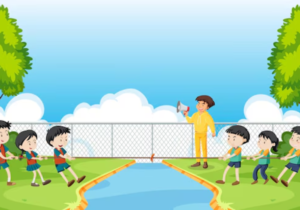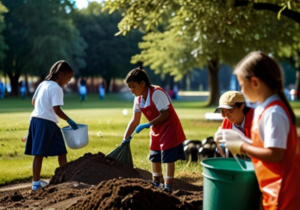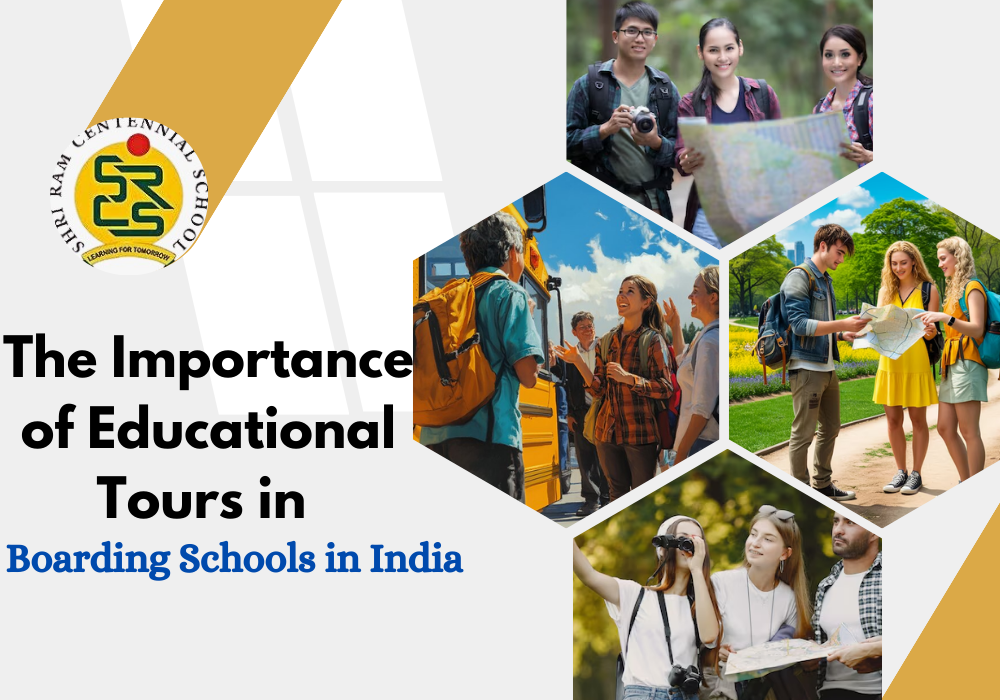As the saying goes, “Experience is the best teacher.” Field visits, a critical component of Boarding schools in India, offer students the chance to step beyond the classroom and explore real-world environments.
These hands-on experiences enable students to connect theory with practice, enriching their overall learning experience.
In this article, we will explore the significance of field visits, their benefits, and how they enhance education in Boarding schools in India.
What are Field Visits?

Field visits are structured educational trips organized by schools to give students practical exposure to what they learn in their textbooks.
Carefully aligned with the curriculum, field visits help reinforce theoretical concepts by allowing students to see, touch, and experience things firsthand.
These experiences are designed to make learning more dynamic and memorable, fostering curiosity and encouraging deeper understanding.
The Importance of Field Visits in Boarding schools in India
Boarding schools in India recognize the educational value of field visits in shaping well-rounded individuals. By incorporating these visits into their curriculum, these schools aim to provide a more immersive and practical learning experience for their students.
1. Bridging the Gap between Theory and Practice
One of the primary advantages of field visits is their ability to connect abstract concepts to real-world scenarios.
For example, a student studying ecosystems in a biology class can visit a forest to see the interdependence of species in action.
Similarly, a history lesson comes alive when students tour historical sites, enriching their understanding of significant events.
2. Developing Critical Thinking and Problem-Solving Skills
Field visits encourage students to observe, question, and analyze what they see.
This experiential learning process develops critical thinking, as students are required to make observations, draw conclusions, and problem-solve in real-time.
The complexity of some field experiences fosters an ability to tackle challenges in unfamiliar environments.
3. Fostering Curiosity and Creativity
Exploring new and diverse environments sparks students’ curiosity, motivating them to ask questions and explore further.
These experiences cultivate creativity as students discover new ideas, concepts, and ways of thinking through their interactions during field visits.
4. Building Confidence and Teamwork
Field visits also provide opportunities for students to build confidence by navigating unfamiliar situations.
They work as teams, take on leadership roles, and enhance communication skills while solving problems or completing activities.
This teamwork not only helps academically but also prepares students for future group dynamics in professional settings.
Benefits of Field Visits for Students

Field visits are packed with benefits that extend far beyond the classroom. They provide students with meaningful experiences that enhance learning in multiple ways.
- Enhanced Retention of Concepts: Experiential learning has been proven to help students retain information better than traditional methods.
- Improved Understanding of Complex Topics: Field visits provide clarity on challenging subjects, making abstract ideas more concrete.
- Development of Life Skills: Students learn valuable life skills such as time management, self-reliance, and adaptability.
- Networking Opportunities: By interacting with professionals and experts in the field, students expand their social networks and gain valuable insights into potential career paths.
- Personal Growth: Field visits help students broaden their perspectives and foster empathy by exposing them to different cultures, environments, and social situations.
Types of Field Visits in Boarding schools in India
Boarding schools in India organize various types of field visits to cater to the different interests and academic needs of their students.
These excursions are planned to provide enriching, well-rounded experiences.
1. Industrial Visits
These visits allow students to explore manufacturing units, factories, or corporate offices, where they can observe industrial processes, business operations, and management strategies in action.
2. Scientific Excursions
Scientific excursions often take students to museums, research centers, and national parks. For science students, these trips provide opportunities to observe scientific phenomena and ecosystems firsthand, making classroom lessons more tangible.
3. Historical and Cultural Tours
Exploring historical monuments, heritage sites, or cultural institutions gives students a deeper understanding of historical events, cultural diversity, and the significance of historical landmarks.
4. Community Service Visits
It involve community service offer students a chance to volunteer in social service projects or engage in humanitarian activities.
These experiences foster empathy and social responsibility while providing a practical understanding of societal issues.
Best Practices for Effective Field Visits

To ensure the success of a field visit, certain best practices should be followed. These practices help maximize the educational impact of each visit.
- Pre-Visit Preparation: Students should be briefed on the objectives of the visit, safety protocols, and expectations. This preparation helps them approach the experience with a focused mindset.
- Expert Guidance: Accompanying students with experienced teachers or field experts ensures that they receive accurate information and proper supervision.
- Debriefing Sessions: After this , holding reflective sessions where students discuss their observations reinforces the learning outcomes and provides opportunities to clarify doubts.
Challenges and Solutions in Organizing Field Visits
Invaluable, they come with their own set of challenges. However, schools can address these hurdles effectively with thoughtful planning.
- Logistical Hurdles: Organizing transportation, permissions, and accommodations can be difficult. Partnering with reputable tour operators or local organizations can streamline these processes.
- Safety Concerns: Thorough risk assessments and safety protocols must be in place to ensure student safety. Schools should be prepared with contingency plans and first-aid facilities.
- Cost Constraints: For some students, the cost of field visits can be a barrier. Schools should explore sponsorship opportunities or budget-friendly alternatives to ensure that all students can participate.
Conclusion
In conclusion, field visits play a pivotal role in the educational framework of Boarding schools in India
They provide students with experiential learning opportunities that bridge the gap between theory and practice, nurture critical thinking, and foster personal growth.
By stepping outside the classroom, students gain real-world insights that complement their academic curriculum, helping them develop into confident, curious, and well-rounded individuals.
As educators and parents, embracing the importance of field visits can significantly enhance the overall learning experience for students, preparing them for future challenges with a broader perspective.










